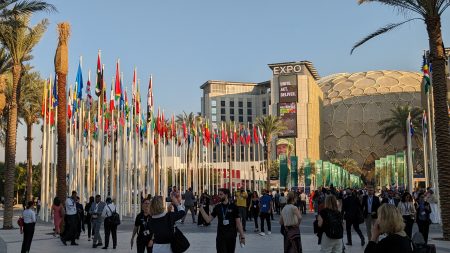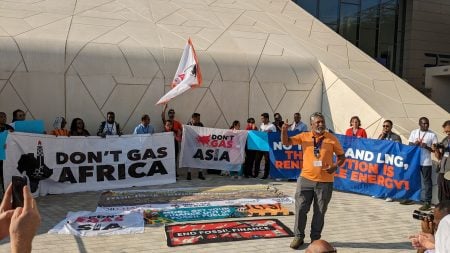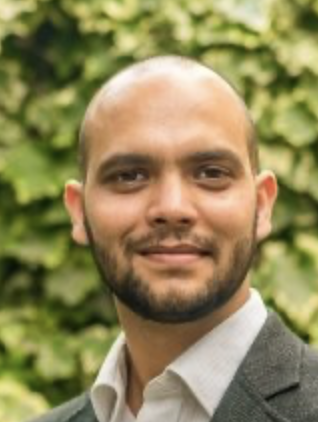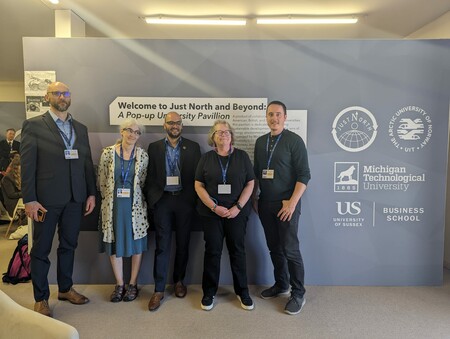
The historic announcement of a Loss and Damage Fund (L&D) at COP28 in Dubai resonated as a long-awaited victory for vulnerable nations bearing the brunt of climate change. Yet, amidst the celebratory spirit, a nagging concern lurks beneath the surface – the absence of a robust and binding governance framework threatens to engulf the L&D Fund in a labyrinth of political and financial complexities.
From an International Relations perspective, the current multipolar world order presents unique challenges for climate governance. The traditional model of global governance, built on the dominance of a few powerful actors, has eroded. This power vacuum creates a more complex and fluid environment, where consensus-building and collective action become increasingly difficult (Mearsheimer, 2001).

Loss and Damage Fund Falls Short of Need
This dynamic is particularly evident in the case of the L&D Fund. While the initial commitment of $700 million marks a significant step forward, it falls far short of the estimated annual need of hundreds of billions of dollars (UNFCCC, 2023b). Moreover, the lack of a binding agreement on funding targets creates uncertainty and undermines the Fund’s long-term sustainability.
Lack of Governance Adds to the Challenge
Furthermore, the absence of a clear and transparent governing mechanism raises concerns about accountability and equitable distribution of resources. Without a framework to ensure that contributions are proportionate to historical emissions and that funds reach the most vulnerable communities, the L&D Fund risks perpetuating existing inequalities (Keohane & Nye, 2000).

These governance challenges are further exacerbated by the rise of nationalism and populism in many countries, leading to political resistance towards international cooperation and financial commitments (Ikenberry, 2018). In this context, securing long-term support for the L&D Fund demands a shift from the traditional power-centric approach towards a more inclusive and participatory model of governance.
Need to Build Empathy and Understanding
Drawing upon the concept of “cooperative hegemony” (Ikenberry, 2001), developed nations must embrace a leadership role that prioritizes collaboration and mutual understanding over unilateral dictates. This requires transparency in decision-making, responsiveness to the needs of vulnerable nations, and a genuine commitment to shared responsibility.
Additionally, fostering a sense of global solidarity and collective responsibility is crucial. Initiatives such as awareness campaigns and international exchange programs can help bridge the gap between developed and developing nations, building empathy and understanding of the challenges faced by vulnerable communities.
Ultimately, ensuring the success of the L&D Fund necessitates navigating the complexities of a multipolar world order with pragmatism and a commitment to global justice. By addressing the current governance gaps and fostering a spirit of international cooperation, we can transform the L&D Fund from a fragile hope into a powerful instrument for climate justice and a beacon of resilience for vulnerable nations.
References:
- Ikenberry, G. J. (2001). After victory: Institutions, strategic restraint, and the rebuilding of order after major wars. Princeton University Press.
- Ikenberry, G. J. (2018). The end of liberal international order? International Affairs, 94(1), 1-23.
- Keohane, R. O., & Nye, J. S. (2000). Power and interdependence in the information age (2nd ed.). Longman.
- Mearsheimer, J. J. (2001). The tragedy of great power politics (updated ed.). W. W. Norton & Company.
- UNFCCC. (2023b, November 30). Report of the Adaptation Committee on its fourthteen meeting. [FCCC/SB/STA/2023/10]
About COP28
Michigan Technological University is one of a handful of universities taking a leading role at the 28th Conference of the Parties to the UN Framework Convention on Climate Change (COP28) from November 30 to December 12, 2023. Hosted by the UAE at Expo City Dubai, COP28 is the largest climate change-focused event in the world. COP28 aims to unite the world towards agreement on bold, practical, and ambitious solutions to the most pressing global challenge of our time. You can read more about the Huskies’ presence at COP28 in the Huskies at the UN Climate Conference (COP) blog.

